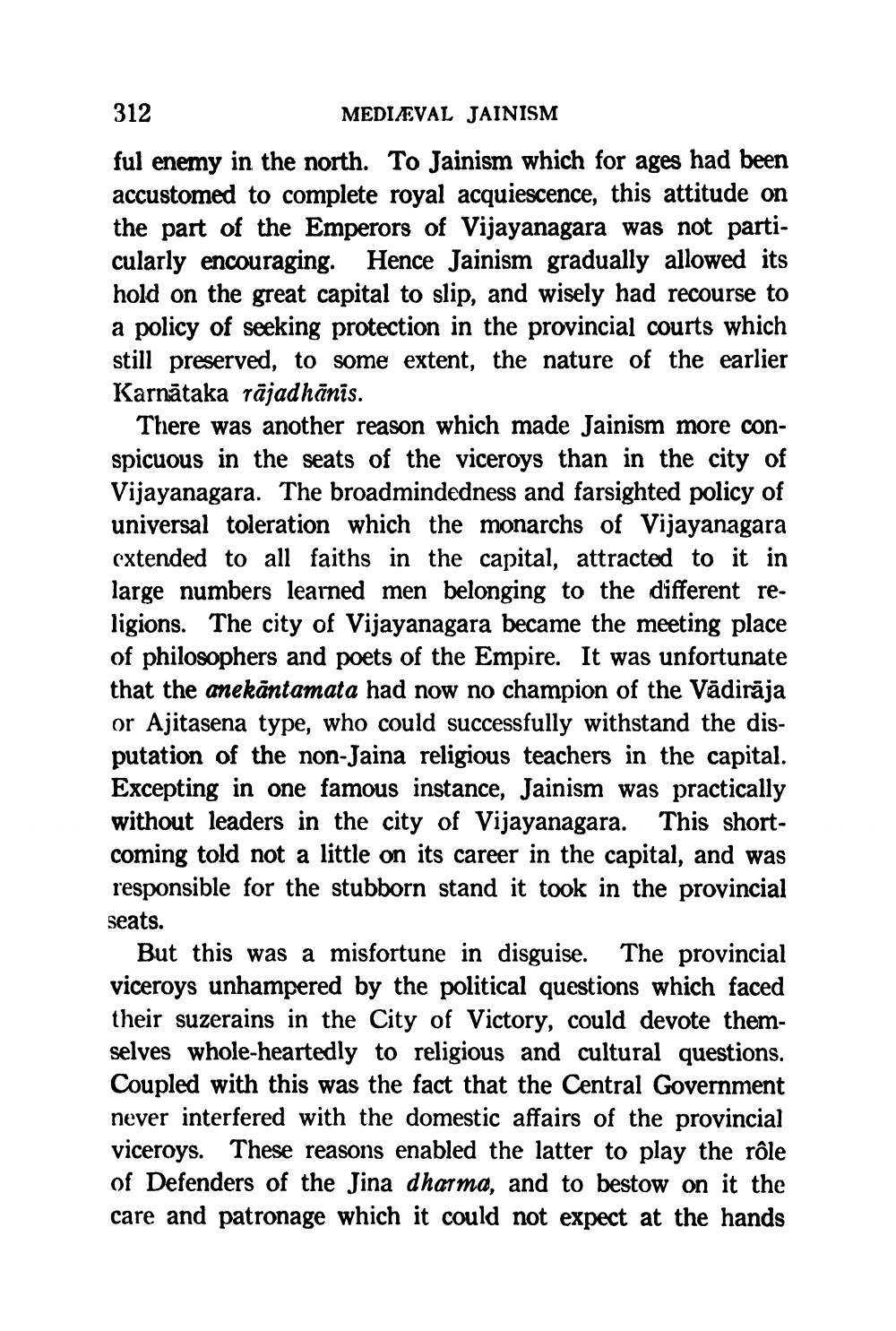________________
312
MEDIÆVAL JAINISM ful enemy in the north. To Jainism which for ages had been accustomed to complete royal acquiescence, this attitude on the part of the Emperors of Vijayanagara was not particularly encouraging. Hence Jainism gradually allowed its hold on the great capital to slip, and wisely had recourse to a policy of seeking protection in the provincial courts which still preserved, to some extent, the nature of the earlier Karnātaka rājadhānis.
There was another reason which made Jainism more conspicuous in the seats of the viceroys than in the city of Vijayanagara. The broadmindedness and farsighted policy of universal toleration which the monarchs of Vijayanagara extended to all faiths in the capital, attracted to it in large numbers learned men belonging to the different religions. The city of Vijayanagara became the meeting place of philosophers and poets of the Empire. It was unfortunate that the anekāntamata had now no champion of the Vădirāja or Ajitasena type, who could successfully withstand the disputation of the non-Jaina religious teachers in the capital. Excepting in one famous instance, Jainism was practically without leaders in the city of Vijayanagara. This shortcoming told not a little on its career in the capital, and was responsible for the stubborn stand it took in the provincial seats.
But this was a misfortune in disguise. The provincial viceroys unhampered by the political questions which faced their suzerains in the City of Victory, could devote themselves whole-heartedly to religious and cultural questions. Coupled with this was the fact that the Central Government never interfered with the domestic affairs of the provincial viceroys. These reasons enabled the latter to play the rôle of Defenders of the Jina dharma, and to bestow on it the care and patronage which it could not expect at the hands




